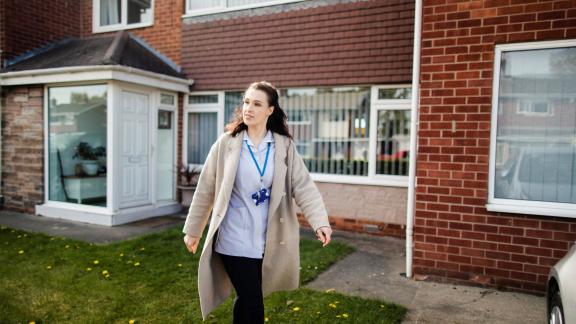Amendments to the network contract DES 2020/21
This briefing summarises the amendments made to the primary care network contract directed enhanced service (DES) for 2020/21. The amendments apply from 1 October 2020 to all practices who are signed up to the DES.
These amendments have been published by NHS England and NHS Improvement and have been agreed with the British Medical Association’s GP Committee (GPC).
Key points
As set out in the guidance document, the amended DES introduces three substantive changes to the 2020/21 Network Contract DES.
Enhanced Health in Care Homes clinical lead
- The amended DES has removed the requirement for the clinical lead under the Enhanced Health in Care Homes service to be a GP (see pp. 32-34). The clinical lead may now be a non-GP clinician with appropriate experience of working with care homes, provided this is agreed by the practices in the PCN, the CCG and the relevant community provider.
- While NHSEI expects that this role will continue to be held by a GP in the vast majority of cases, they state that ‘we know that some alternative models have been established through the COVID-19 response – for example where the position is held by another member of the practice team, or by staff in community trusts’.
- The PCN Network has published guidance on the role of the clinical lead for care homes. We also want to understand how prepared PCNs feel to introduce the requirements of the specification and would invite you to complete this short survey.
New reimbursable roles under the Additional Roles Reimbursement Scheme (ARRS)
- The amended DES has introduced two new roles (see guidance, p.25 para 8.1.1) that can be reimbursed under the ARRS, subject to them meeting the minimum requirements set out in the DES:
- Nursing associates can now be reimbursed up to a maximum annual reimbursable amount of £29,135 per FTE
- Trainee nursing associates can be reimbursed up to a maximum annual amount of £25,671 per FTE
- The addition of these roles takes the total number of reimbursable roles via the ARRS this year to 12. NHSEI states that it ‘remains committed’ to introducing mental health practitioners and community paramedics as reimbursable roles in 2021/22, while it will ‘continue to consider’ the introduction of advanced nursing roles.
Introduction of the Investment and Impact Fund (IIF)
- The previous version of the 2020/21 network contract DES signalled the postponement of the introduction of the Investment and Impact Fund (IIF) until 1 October. Of the £40.5 million funding originally earmarked for the IIF, £16.25 million has already been allocated to PCNs.
- This amended DES introduces the remaining £24.25 million funding, which will be available for PCNs to earn through the new IIF. The IIF will operate in a similar way to QOF, with each indicator allocated a certain number of points (with the number of points indicating the relative allocation of funds). There are six indicators for 2020/21 (see IIF guidance, p.3 para 2.3).
- For 2020/21, each IIF point will be worth £111 and there will be a total of 194 points available to each PCN. Payments to PCNs will be proportional to points earned, with an adjustment for list size and (where relevant) prevalence. There will be a sliding scale of reward for performance between the lower and upper thresholds for each indicator. NHSEI states that thresholds have been set to strike an appropriate balance between rewarding good performance and enabling all PCNs to have the potential to access some IIF funds.
Structured medication reviews (SMR) and medicines optimisation
SMR guidance outlines how each PCN will identify and prioritise patients who would benefit from a SMR, including those:
- in care homes
- with complex and problematic polypharmacy, specifically those on ten or more medications
- on medicines commonly associated with medication errors
- with severe frailty, who are particularly isolated or housebound or who have had recent hospital admissions and/or fall
- using potentially addictive pain management medication.
When delivering the service, PCNs are also advised to be alert to the needs of communities at particular risk of COVID-19, such as black and minority ethnic communities.
Next steps
Further to the amendments to the 2020/21 network contract DES outlined above, the BMA’s GPC and NHSEI will soon begin negotiations over the 2021/22 DES.
The guidance states that to simplify the participation process in future, a practice participating in the network contract DES in 2020/21 will automatically be enrolled in subsequent years, however practices retain the right to opt-out of the network contract DES in line with the opt-out process set out in the DES specification (see guidance, p.5 para 2.1.6)
Any comments from PCNs are welcome on the DES amendments or any other PCN-related issues and should be sent to PCNnetwork@nhsconfed.org



